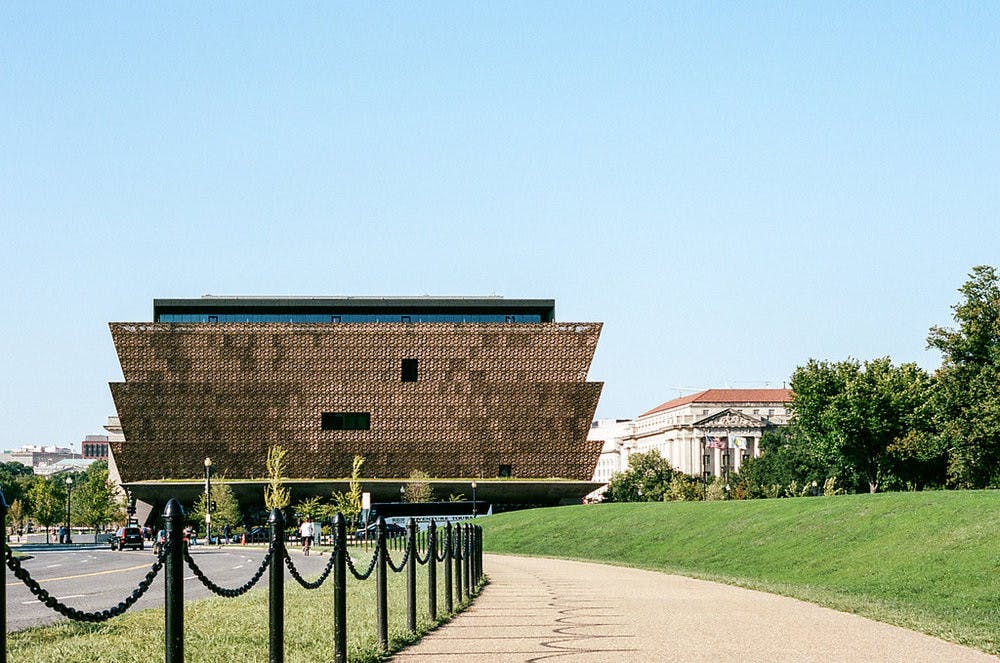BY: DEVONTAE TORRIENTE

Photo by Olli Thomson
This week, my colleague at The Eagle, Nickolaus Mack, made note of American University's connection to slavery and the legacy of its founder and first president, John Fletcher Hurst.
Hurst, a slave owner, founded the Methodist university in response to the opening of the Catholic University of America. Mack points out that as a result, the university's construction attracted other property developers to the area, subsequently displacing African Americans from their homes. The move undoubtedly adversely impacted the Black community in Tenleytown.
American University is not unique in its connection to slavery and negative history with African Americans. Campus activists at other universities have tasked their institutions with confronting their connections to America's original sin. Given that Founder's Day is an intentional celebration of the university's history, it inherently includes its first slave-owning president. But every year, in the midst of this celebration, there has been little, if any, recognition of those who literally laid the groundwork for the university to exist: The enslaved Africans who labored on the land before it was sold to American University.
I've attended Founder's every year since my first. But this year, I cannot in good conscience celebrate the founding of a predominantly white institution plagued by racism—especially given the current political climate—at the National Museum of African American History and Culture, a museum that is dedicated to portraying the legacy and culture of Black people in America.
The purpose of Founder's and the purpose of the museum run counter to each other. But do we throw the baby out with the bathwater? I can't say for sure, but I think there needs to be more intentionality and consciousness in the celebration of this event in particular, especially when its hosted at a museum like NMAAHC.
In the words of Lonnie Bunch, an AU alumnus and founding director of the museum, "there are few things as powerful and as important as a people, as a nation that is steeped in its history." That makes me wonder, how can a university that has failed to adequately address its history celebrate itself at a museum that strives to do just that for the country?
Students attend Founder's to have a fun time and there's nothing wrong with that. But, it's no secret that pre-gaming Founder's is just as much of a tradition as the event itself. I understand the desire to let loose and enjoy oneself at this event, but I take issue with mostly non-Black students showing up to a space meant to celebrate Black people, intoxicated. There's a high level of entitlement and audacity associated with prioritizing a fun night of drinking over appreciating and learning from the sobering history the museum showcases.
To be clear, my goal is not, nor has it ever been, to dissuade anyone from attending Founder's. Nor do I think we should cancel it now or discontinue it for years to come. Although I disagree, I sympathize with my fellow Black students who are excited to celebrate themselves as both Black people and AU students at Founder's. But, hosting the event at this museum was a bad call. I won't attend because the last thing I want to do with my Saturday night is contain my anger and frustration with non-Black students making a fool of themselves in a space meant to honor Black ancestors. The problems likely to occur that night are foreseeable. Students making light of the gravity of the venue, either by showing up drunk, taking pictures in front of slave ships, or making offhand comments about the exhibits, are all easily anticipated.
That said, it is important not to dismiss the hard work that goes into planning an event of this nature. I say this as both a student and former Student Government president who watched up close as last year's event at the Newseum came to life. There is space for us to rightfully critique this mistake, while also not belittling the work of our peers. The director of Founder's Week, her team and everyone involved in making this event a reality put their blood, sweat and tears into making it a reality.
I say and have always maintained, with as much love as possible, that choosing this location was a fundamentally misguided decision. While it may be too late to relocate the venue, I only ask one thing of everyone attending the event this Saturday: Respect the museum and the legacy of African Americans. I fear that the disrespect is inevitable, but I hope you prove me wrong.


